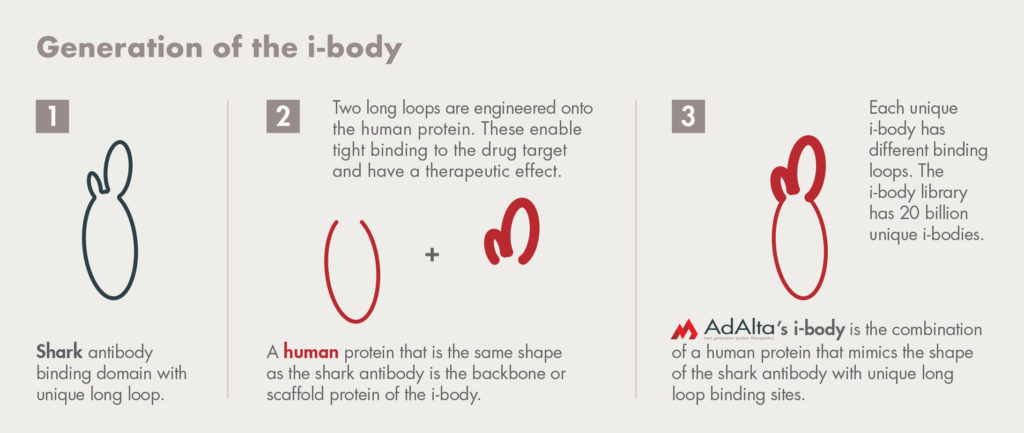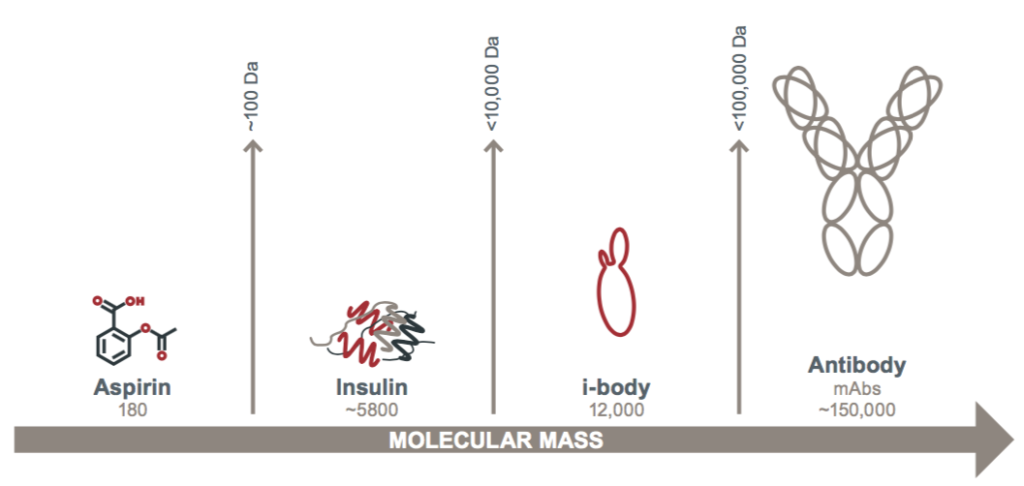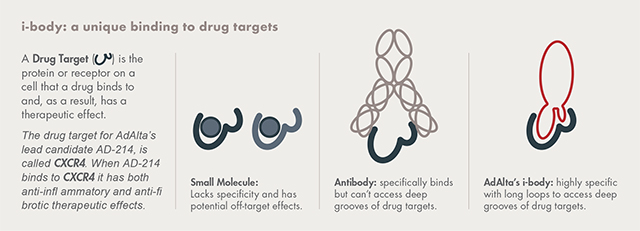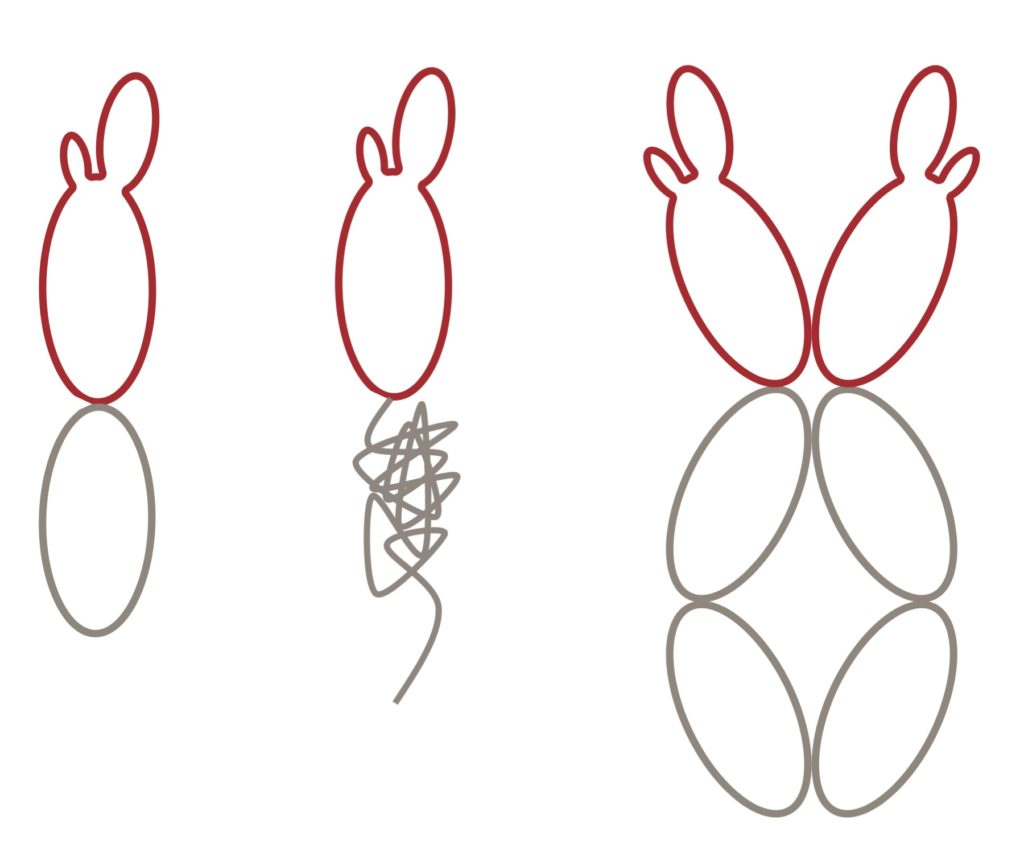What is an i-body?
An i-body is a human protein that belongs to the class of next generation antibodies. The i-body is built on the scaffold of a human protein and engineered with two loops that mimic the shape of shark antibodies. These loops are responsible for binding or interacting with a particular target (in circulation or on a cell) that is causing disease. i-bodies are identified and developed using our proprietary technology platform.

Similar to the antibody of a shark, one of the two i-body binding loops is very long – up to twice the length of human antibodies. This long loop gives the i-body a superior ability to access groves and cavities compared to traditional monoclonal antibodies and many other next generation antibodies in development can’t access. The size of a traditional monoclonal antibody is around 150,000Da, whereas an i-body is less than one-tenth of that size at approximately 12,000Da.

All the benefits of small molecules and antibodies without the limitations, reaching places existing drugs can’t reach
Why use i-bodies?
The unique structure of the i-body provides competitive advantages over other classes of pharmaceuticals such as small molecules and antibodies.

The i-body binds with high affinity and specificity to a drug target, like a traditional monoclonal antibody, reducing the off-target side effects commonly associated with small molecule drugs.
The i-body, with its small size and long binding loop, provides access to drug targets that evade traditional monoclonal antibodies. These include G-protein-coupled receptors (GPCRs), currently the most heavily investigated class of drug targets in the body, as well as Ion Channels, a class with significant untapped potential.
Customising the i-body
The i-body can be customised to increase the duration of the time the drug stays in the body, called the half-life. AdAlta has successfully produced i-bodies using various half-life extension technologies including PASylation, PEGylation and as well as by adding the i-body to an Fc-Fragment, which is the format of AdAlta’s lead candidate, AD-214.

